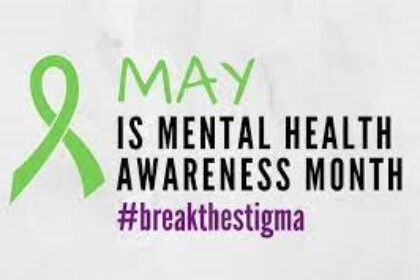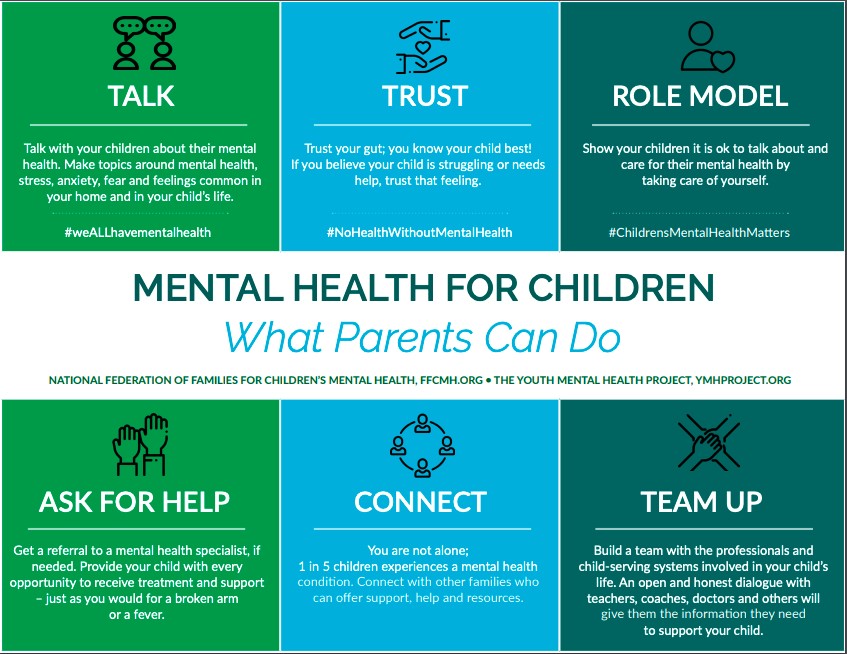
Mental health is important at every stage of life, from childhood through adulthood. Mental health encompasses our emotional, psychological, and social well-being. It affects how we think, feel, and act and helps determine how we handle stress, relate to others, and make healthy choices. Good mental health is a state of well-being in which a person realizes their potential, can cope with the normal stresses of life, works productively, and can be involved in their families and communities.
Mental illness refers to a state in which an individual’s mental well-being is negatively impacted, and they are unable to function effectively in their daily life. It can manifest in many ways, and the symptoms may vary depending on the person and the specific mental health condition they are experiencing. There are more than 200 types of mental illness. Some signs you or a loved one may be experiencing a mental disorder are:
• Persistent feelings of sadness, hopelessness, or helplessness
• Difficulty sleeping or staying asleep, or oversleeping
• Loss of interest in activities that were once enjoyed
• Significant changes in appetite or weight
• Difficulty concentrating, making decisions, or remembering things
• Increased use of drugs or alcohol
• Social withdrawal or isolation
• Irritability, mood swings, or outbursts of anger
• Persistent feelings of anxiety, fear, or worry
• Suicidal thoughts or behavior
Mental health is not a static state, but one that can be influenced by a variety of factors, including life experiences, genetics, environment, and lifestyle choices. Just as physical health can change over time, mental health can also fluctuate throughout an individual’s lifetime. People may experience periods of good mental health, and they may also experience periods of poor mental health. Mental health conditions can develop or worsen over time, but they can improve with proper treatment and support. Mental illness is not a personal failure or weakness; seeking help for mental health concerns is a sign of strength. About one in four adults in the United States suffer from a diagnosable mental disorder in a given year. Depression is the leading cause of disability in the United States for individuals ages 15-44. Two-thirds of people with diagnosable mental disorders do not seek treatment. With the right treatment, support, and self-care, individuals can manage their mental health and improve their overall well-being over time.
Mental health awareness refers to the level of understanding and knowledge that individuals and communities have about mental health and mental illness. Mental health awareness involves recognizing that mental health is an important component of overall health and well-being and that mental illnesses are real medical conditions that can be treated with the appropriate care and support. Mental health awareness aims to reduce the stigma and discrimination that surrounds mental illness and to promote a culture of acceptance and support for those who live with mental health conditions. It involves promoting education, advocacy, and support for individuals with mental health conditions, as well as their families and loved ones. The goal is to increase understanding and empathy towards individuals living with mental illness and to encourage them to seek the help and support they need.






